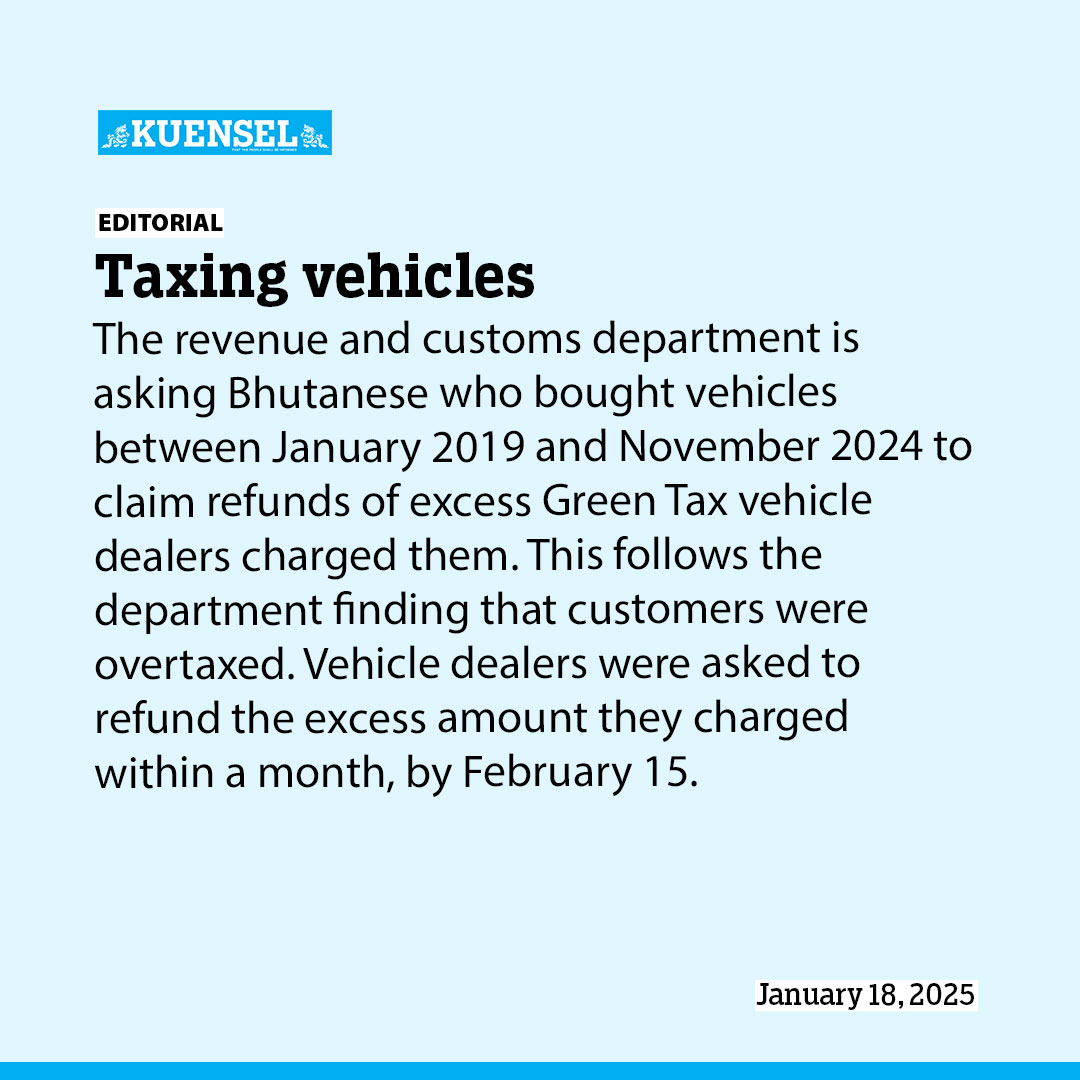The revenue and customs department is asking Bhutanese who bought vehicles between January 2019 and November 2024 to claim refunds of excess Green Tax vehicle dealers charged them. This follows the department finding that customers were overtaxed.
Vehicle dealers were asked to refund the excess amount they charged within a month, by February 15. Vehicle dealers were also asked to rectify their current practice of collecting higher green tax inconsistent with the actual green tax rates. The department will not tolerate such practices and will severely penalise vehicle dealers or sue them if repeated.
The refund is in the millions when combined. Eleven dealers have overcharged customers. Those who bought vehicles within the above time period will feel justified when they get their refund, hopefully before February 15. The government or the DRC has done a good job in finding out the lapses. Justice will be done when they get their refund.
However, the recent incident speaks volumes of lapses and loopholes in our system making ordinary Bhutanese vulnerable to exploitation. As an import dependent country, everything imported is taxed. Those in the import business- from essentials to luxury items – do not feel the tax burden. They pass it on to the customers driving prices of goods and services.
Taxes are an important source of revenue to the government. The revenue is then ploughed back to build schools, hospitals, roads and bridges and many more. Despite the burden of tax, our tax to gross domestic product ratio, at 13.5 percent, falls short of the World Bank’s benchmark of 15 percent. We have, recently, seen an increase in property tax to increase the revenue base.
Besides feeling the burden, not many are complaining knowing that the government needs the revenue to fund development activities. However, people will complain when they are overtaxed. Taxing common people beyond the approved rate is a crime. This is why many are calling the government to penalize the vehicle dealers for making profit from overtaxing customers. Many feel that just asking them to refund is not enough. They are calling for stricter action, like cancelling their business licenses.
It makes sense. Had the government not found the lapses, vehicles dealers were robbing the people of their little savings. Like someone said, taxes on vehicles are what is called double taxation because the savings they made to purchase a car was already tax. For instance, those dependent on monthly salaries already pay a tax on their salary, those depending on business pay a business tax and the savings to buy a family car comes with taxes.
While we discuss the lapses, it is an opportune time to also discuss how vehicles are taxed. Owning a car in Bhutan is not a luxury unlike in developed countries with efficient and affordable transport systems. While we see improvement in public transport in the capital, many cannot rely on it. A car is a necessity even today as the public transport system awaits improvement. For a fair taxation system, we could relook into the taxes levied on the import of cars. A fair tax, like many wish, could be a progressive tax – meaning increased taxes on the second, third or fourth car a family buys.
Many feel aggrieved at the current policies. For instance, the tax breaks enjoyed by those in the tourism business.


